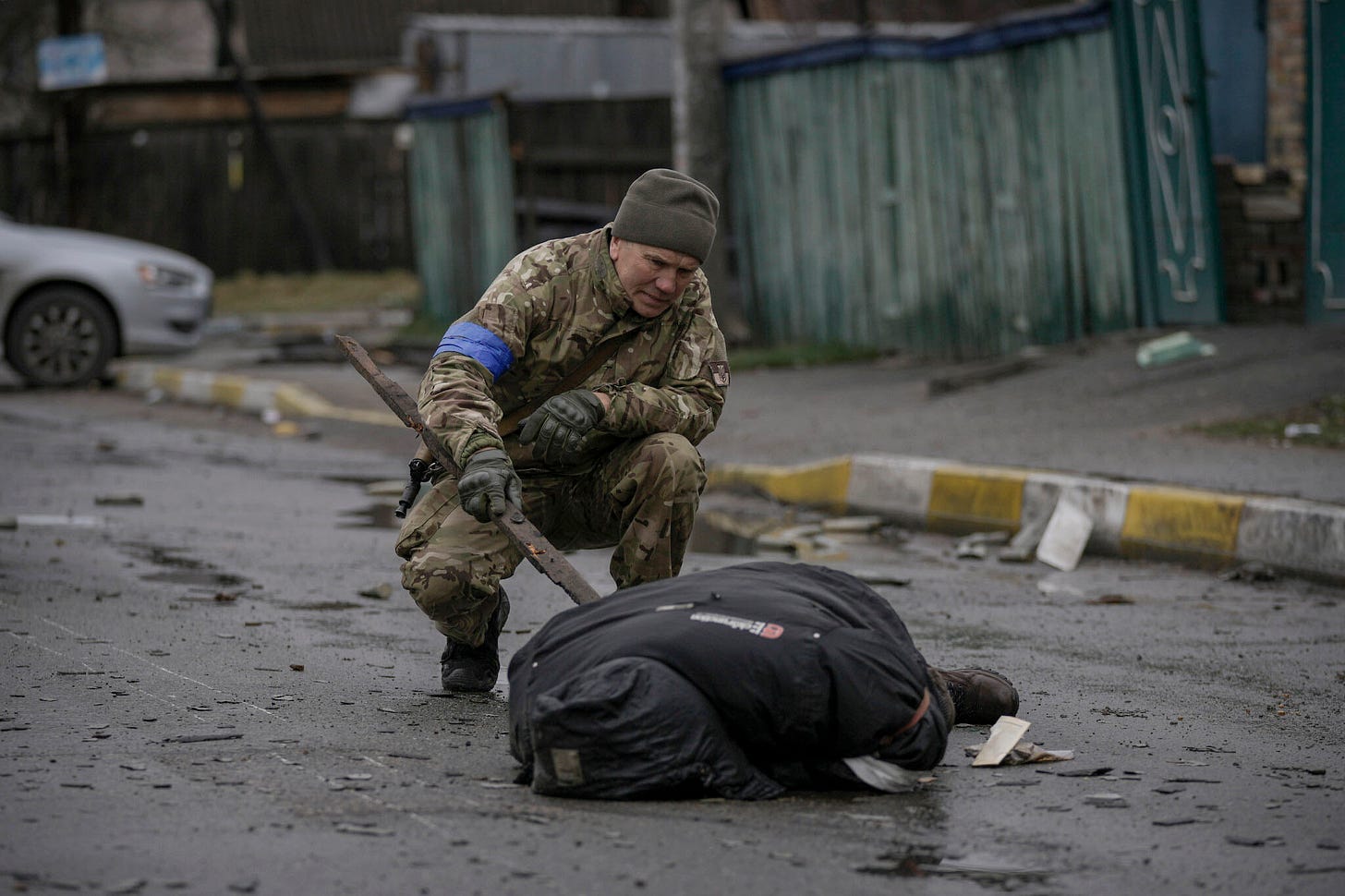Understanding the War
On the Exceptionality of Russia’s All-Out War Against Ukraine
A Ukrainian serviceman checks the dead body of a civilian for booby traps in the formerly Russian-occupied Kyiv suburb of Bucha, Ukraine, Saturday, April 2, 2022. AP Photo/Vadim Ghirda
Perhaps what Western leaders lack most is an understanding of war. They are certainly subjugated by its absolute brutality and its lack of mercy on the part of the Russian…


